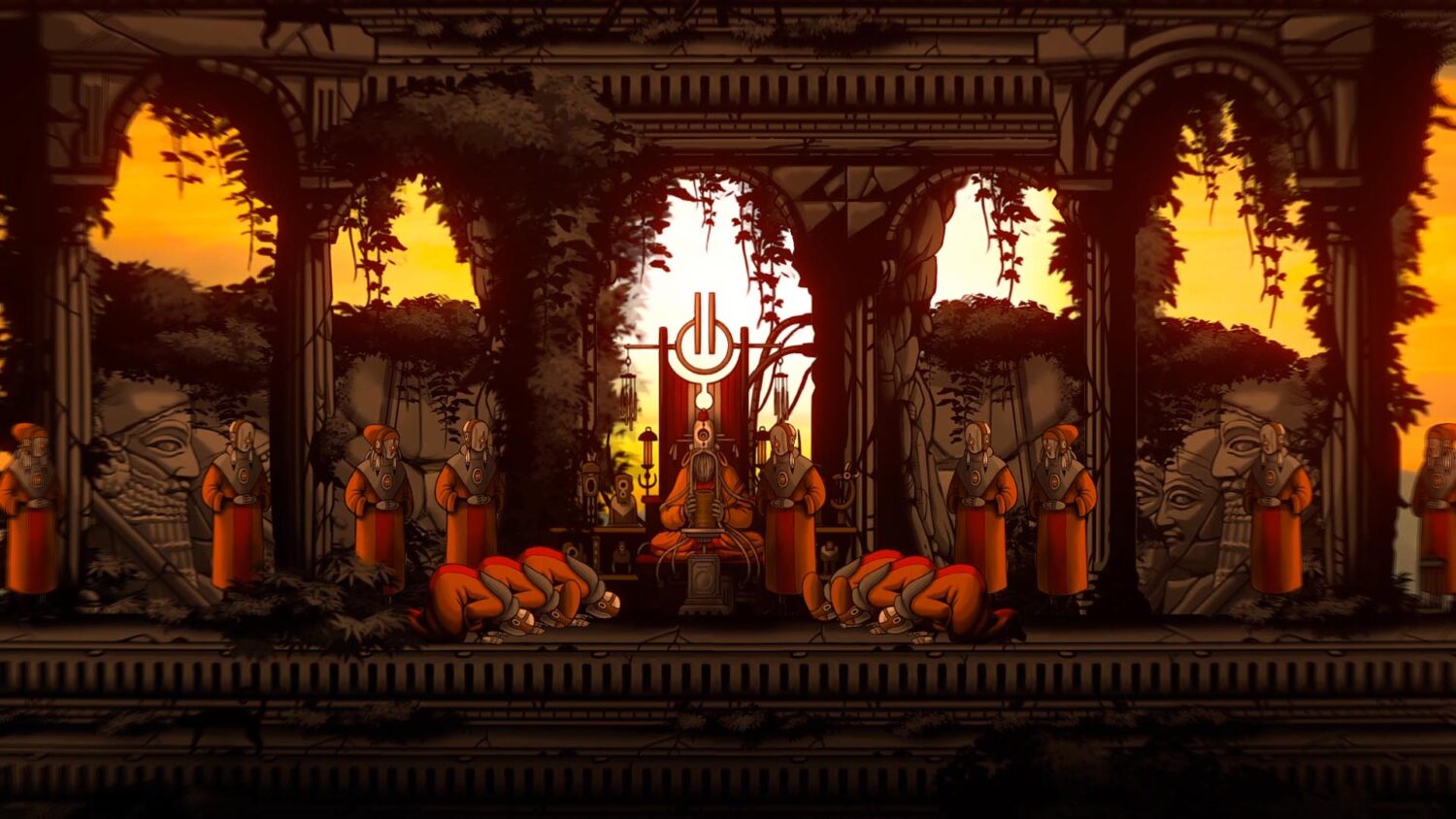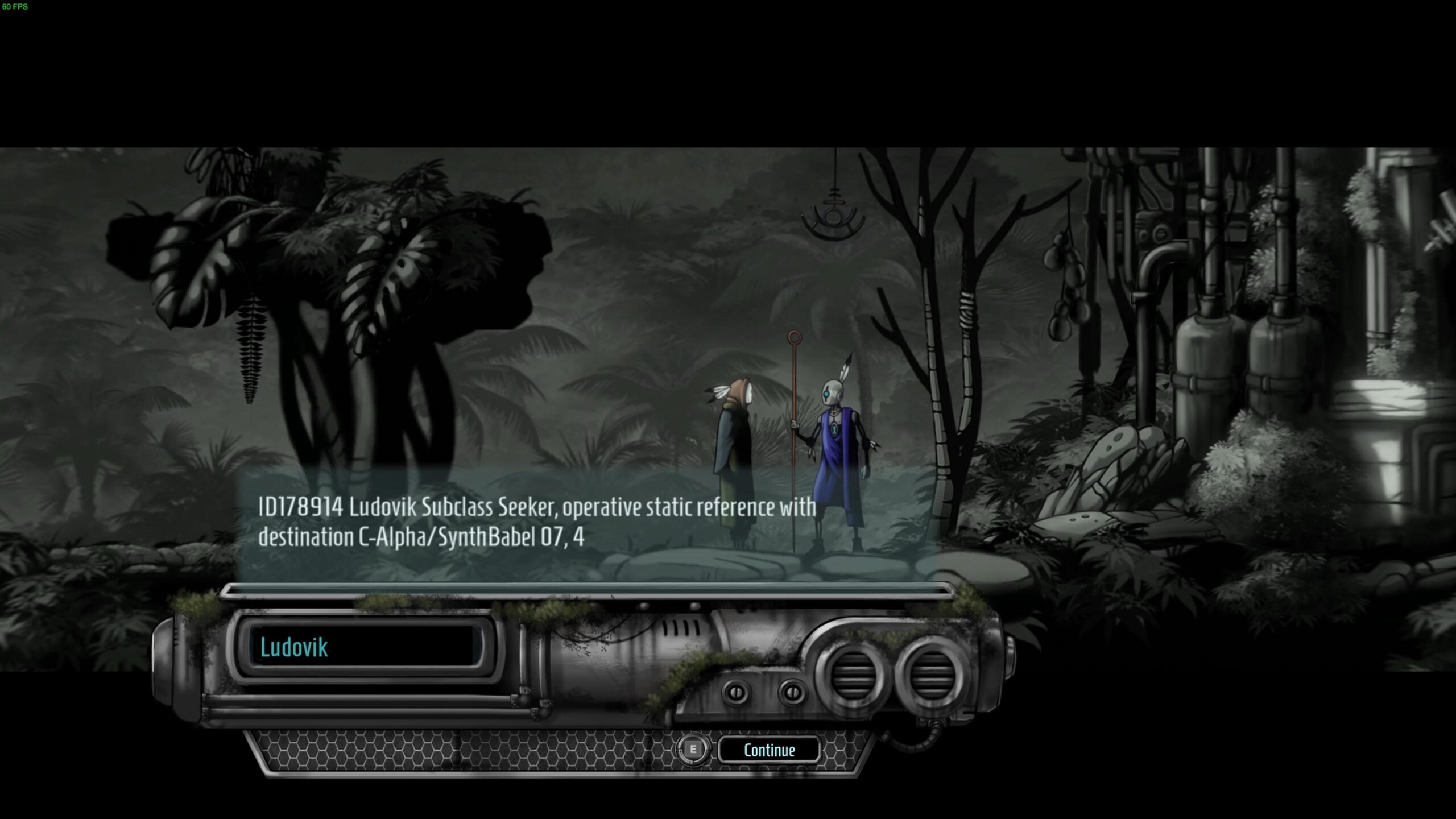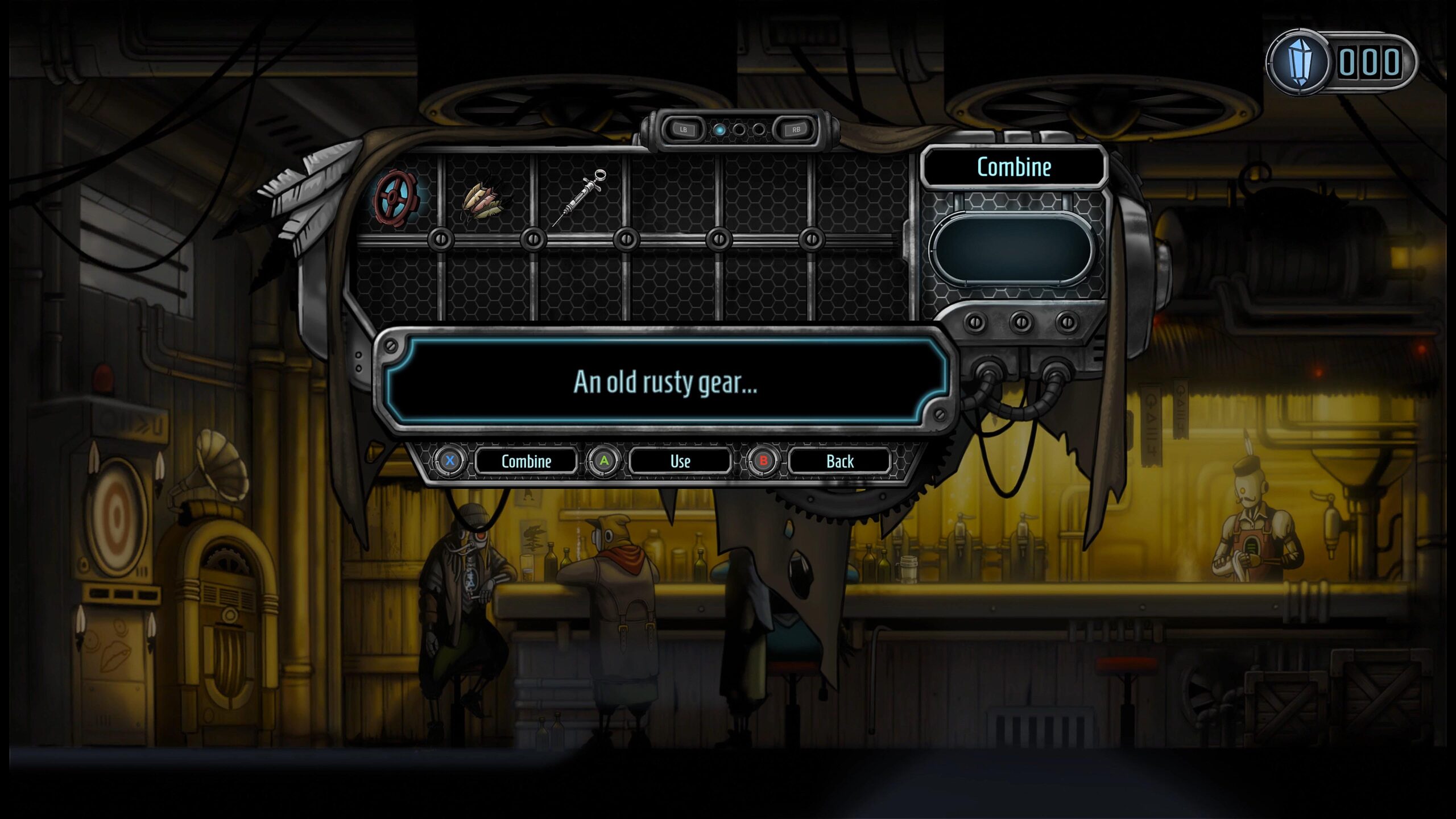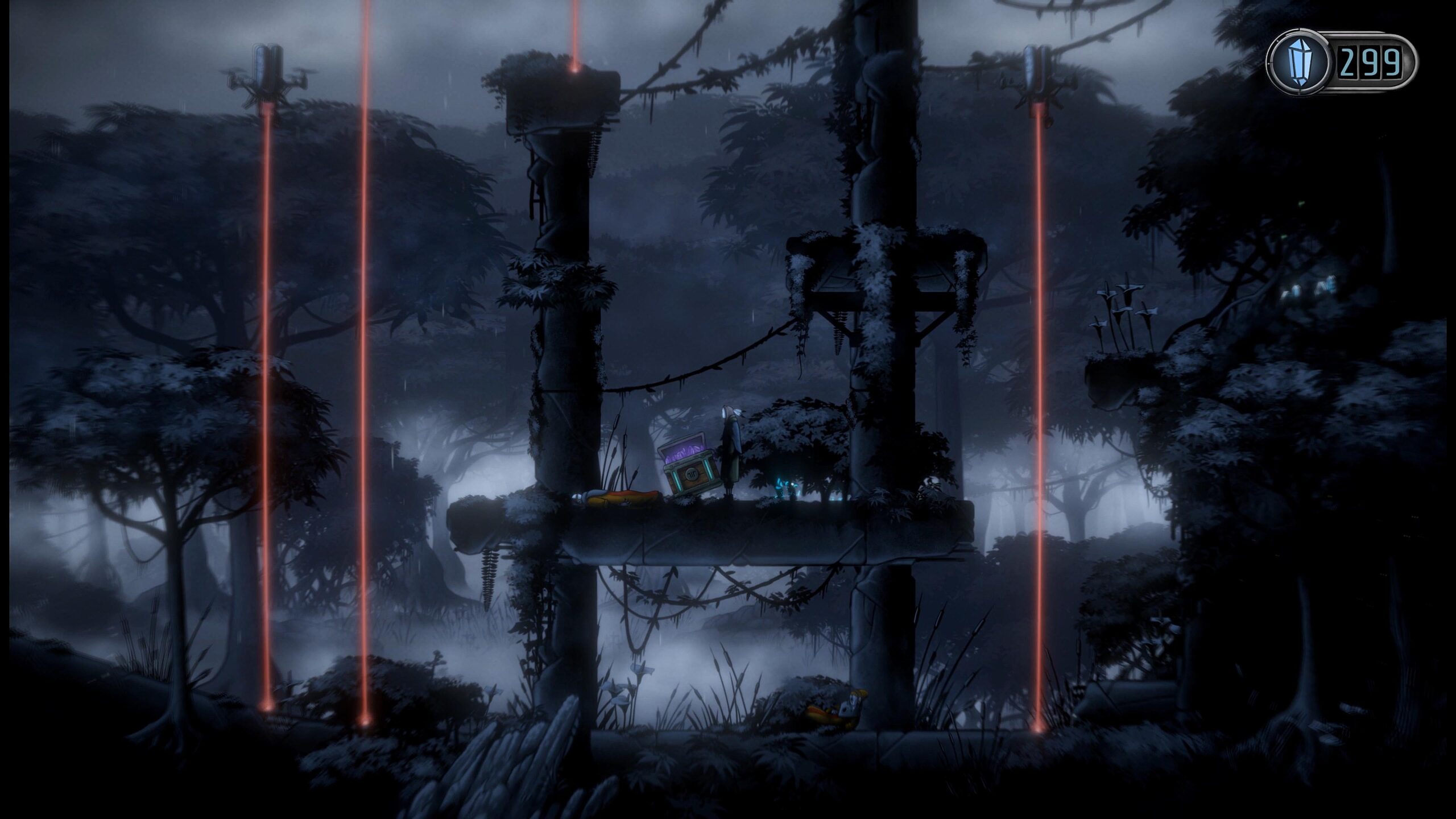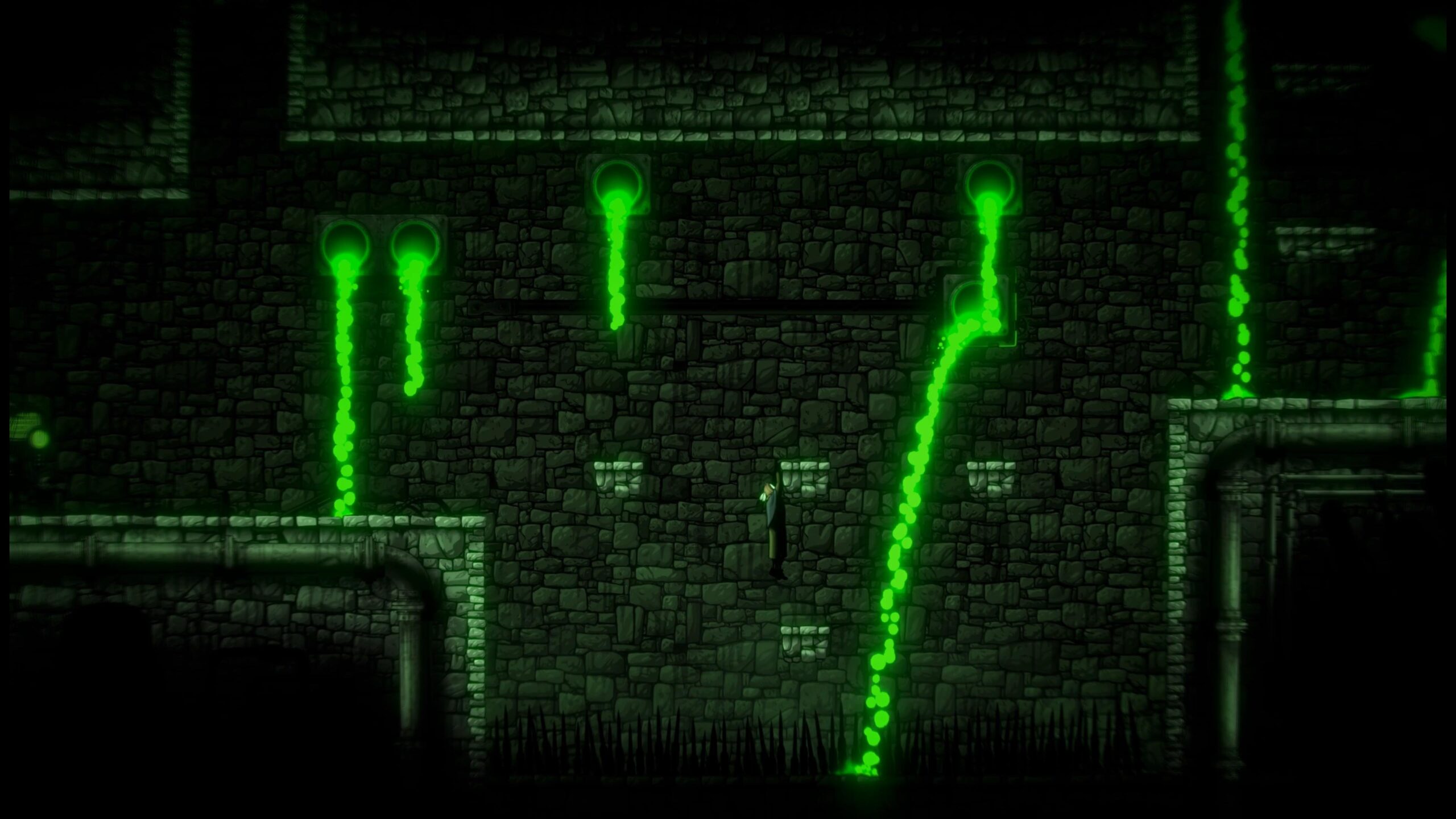"Once again without emotion; the humans are dead."
I’m going to get kicked out of The Library of Babel. You’re supposed to be quiet in libraries, and this game had me yelling at my TV more than the crappy NFL officiating on your typical Sunday afternoon.
And honestly, I was saddened by how frustrating The Library of Babel would become considering its stellar beginning. Inspired by a 1941 short story by Argentine author Jorge Luis Borges, the game is set 20,000 years after the extinction of humankind. Robots now run the Earth with little knowledge of their creators.
As Ludovik, you’re one such robot—a Seeker, which is kind of a detective.
You’re sent to a remote colony deep in a jungle only to quickly witness a murder-suicide. This is centered around a library that “…contains everything that has, is, and will ever be written…” and a swelling uprising that could destroy the foundation of the robot society. Ludovik is assigned various tasks to infiltrate this uprising, and will travel to numerous connected locations along the way. What he learns about the library and his connection to it all, of course, is not what he expected.
It’s all pretty weighty sci-fi fare that had me pining for Mr. Swinehart’s escape fiction class back in high school (it may be time to reread City). The story unfolds nicely as you move from location to location. The narrative arrives in bits, but it never feels disjointed or hidden behind the gameplay; you remain cognizant of your goals even while distracted by the game’s numerous sidequests.
Well, maybe they’re not sidequests. The Library of Babel’s gameplay is evenly split between adventure puzzles and stealth platforming. The puzzles generally involve communicating with the numerous robots at each location, finding out what they need, and getting it for them. That then opens you up to more items and puzzles. Despite the futuristic settings, the puzzles will be familiar from the very start. One robot needs power for his store. A group of guys need to fish out an item that’s stuck in a pipe. One guy needs lubricant for his machine, then he needs a way to apply the lubricant. Find the items, combine them in your inventory, use them, and advance.
The game does a pretty good job of managing this traditional system. However, there are numerous times where you’ll exhaust every possible combination of items before eventually learning you just don’t yet have access to what you need. So, account for plenty of time fruitlessly tinkering with your inventory and traveling between locations to initiate the same conversations (which can’t be skipped) with other robots. That’s part and parcel for adventure puzzle games, so we can’t really fault the developers for that.
And it helps that the locations are visually stimulating. The dense jungle settings, for example, actually feel dense. They have a wonderful depth to them despite the 2D gameplay, and they’re cluttered in a way that looks and feels natural to the setting. This clutter is used to hide a lot of secret locations that are fun to uncover. Working your way through this world is tremendously rewarding…
…until the gameplay screws it all up. The second element to The Library of Babel is the stealth platforming, and it’s infuriating. Think Another World or Flashback but with more sneaking. The early levels are great as you learn how to use the environment to slip past the numerous enemies: hang from ledges, take cover behind boxes and bushes, etc. Before too long, however, the difficulty level just becomes spiteful.
For example, an early puzzle requires you to climb a series of ledges without being detected by floating sentries with sensor lasers.
You won’t be detected if the lasers hit you while you’re not moving, but this means waiting for the right opening to advance.
And waiting.
And waiting.
And dozing off.
And waking up.
And waiting.
I don’t get why the developers felt that standing still in a platformer for minutes at a time would make gamers happy. The problem is exacerbated by the need to perfectly execute a series of moves to advance. The proper positioning required to grab ledges is too strict, so you’ll often miss jumps after taking far too much time to even reach them. Back to the bottom for more waiting.
Just as bad, you have to make your way far into a new environment before you’re allowed to warp there. There are many checkpoints along the way, so dying usually just means having to work back through a few obstacles (hopefully not the longer, more annoying ones).
Oh, and paying a reincarnation tax. Each time you die and start over at a checkpoint, you lose a bit of the in-game currency (often required to purchase the items you need to solve a puzzle). If you purposely warp back to a settlement for any reason, you’ll need to retrace your steps and replay any slow, aggravating platform areas in front of the warp point you didn’t unlock. Why not put a warp point at the beginning of each location? Again, spiteful.
So, as much I loved The Library of Babel’s first hour or two, as much as I loved the item puzzles and logic games scattered about, as much as I loved the visuals throughout, I can’t recommend the game to anyone but the most patient and digitally nimble of players. The story is great, and the puzzles are fun, but the platforming gameplay is too sluggish and unfair to justify the repetition and aggravation.
Review: The Library of Babel (Nintendo Switch)
Fair
There’s a great game waiting to be checked out from The Library of Babel, but it’s currently buried under platforming puzzles that are too annoying to be fun. It’s a beautiful game with a compelling story, but it needs some difficulty adjustments to let the fun parts save the day.

